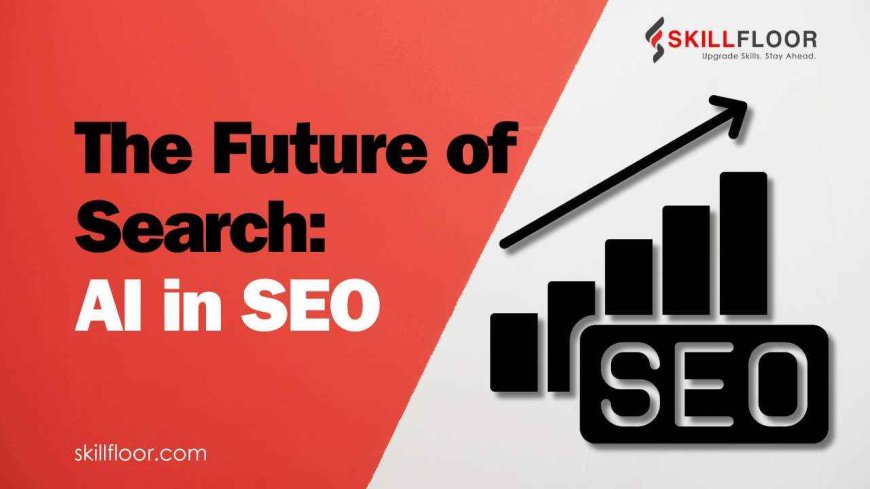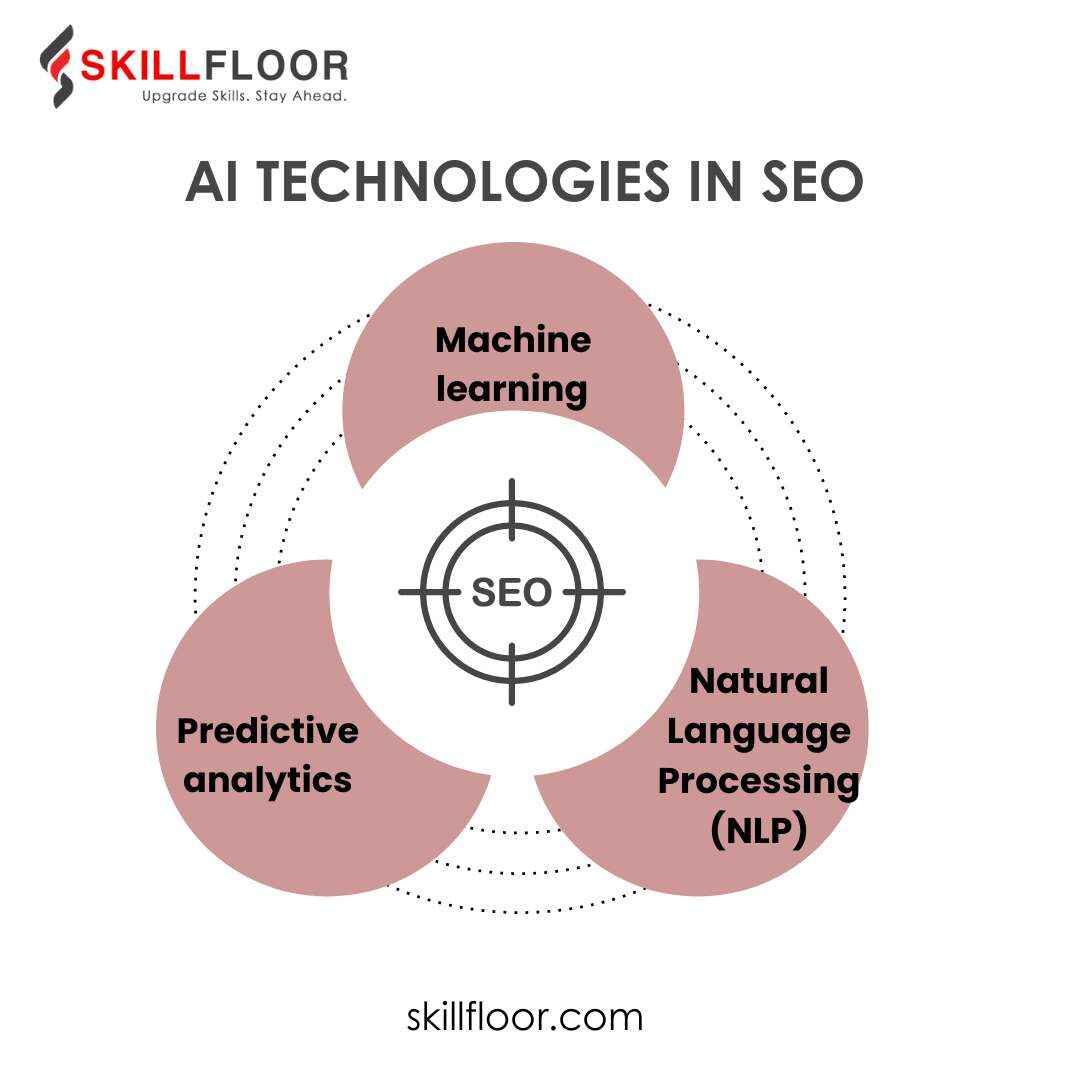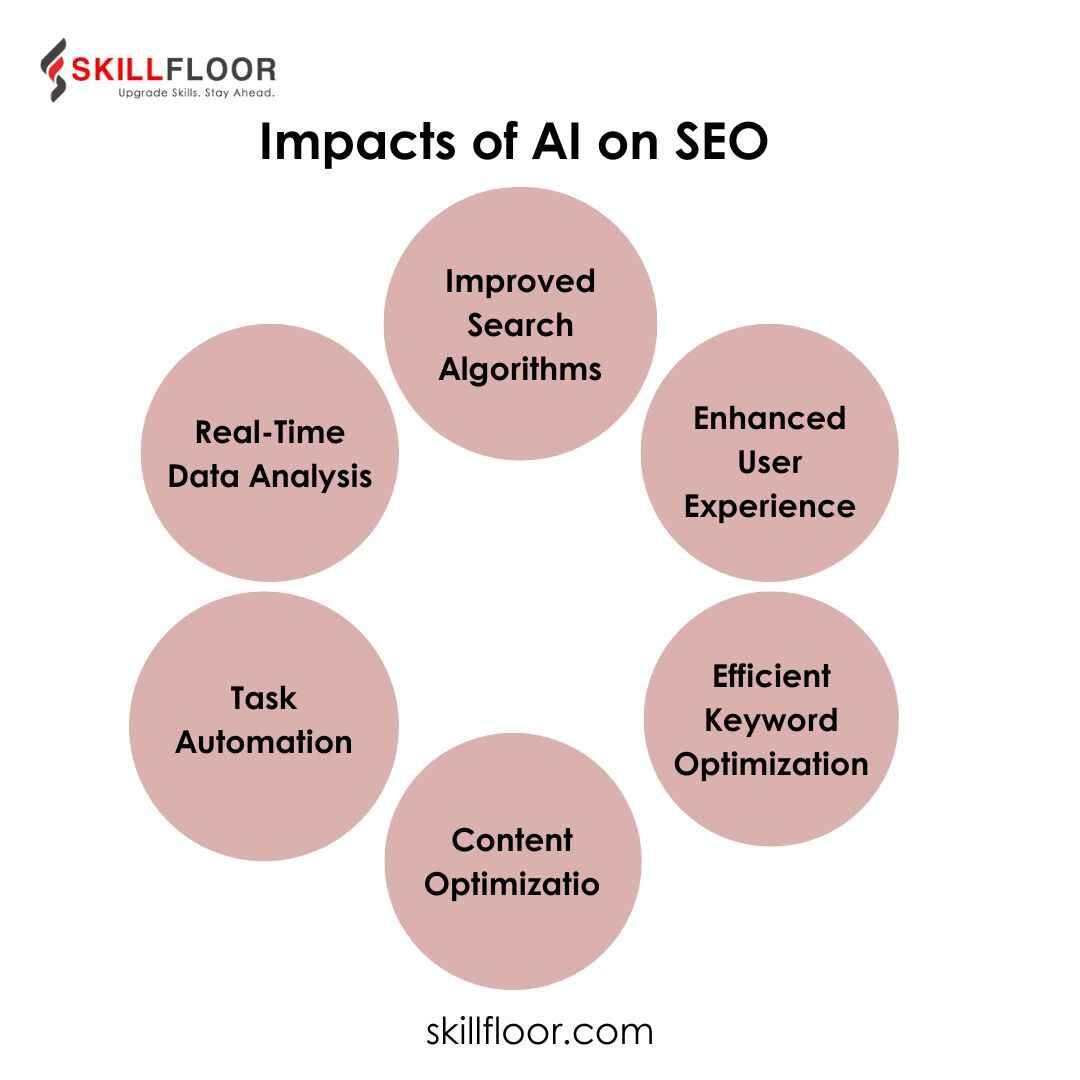AI in SEO and Its Impact
Discover how AI is transforming SEO, enhancing keyword research, content creation, and ranking strategies. Learn about AI's impact on search engine optimization.

The way we currently deal with AI in digital marketing is changing due to the role of AI in SEO and its impact. A more efficient and successful method of increasing online visibility is emerging through the combination of AI in SEO with innovative methods. Imagine using machine learning in SEO to organize enormous amounts of data, finding patterns and insights that help with precisely customizing content for the audience you are targeting. It's similar to having a knowledgeable helper who understands just where to direct your efforts! In addition, repeated operations are becoming less labor-intensive due to SEO automation tools. By automating tasks like keyword research and SEO backlink optimization, these technologies free up time for strategic and creative endeavors. It's interesting to consider how artificial intelligence (AI) is influencing digital marketing and will make our work easier and more significant as we keep looking into its application in SEO.
Understanding AI in SEO
Artificial intelligence, or AI, is simply technology created with human thinking and learning in mind. Algorithms, or instructions for problem-solving and decision-making, are used in this process. Machine learning, where the system gets better and learns from experience without needing to be explicitly programmed for every task, is a crucial component of artificial intelligence. Not only is this technology useful for intricate tasks, but it's also becoming a commonplace aspect of daily life, aiding in anything from home automation system management to medical condition diagnosis. Artificial intelligence (AI) aims to simplify activities and improve human capabilities, functioning as a constant, evolving assistant.
How AI technologies are applied in SEO
AI technologies improve website connections to search engines and users, making them increasingly important to SEO. Here’s how different types of AI technologies are applied in SEO:

-
Algorithms for machine learning: These enable SEO tools to automatically learn from data. They examine how modifications impact a website's search engine rankings and modify tactics accordingly, gradually improving the optimization process.
-
Natural Language Processing (NLP): Computers are now able to understand human language through a technology called natural language processing, or NLP. NLP is used in SEO to improve the relevancy and engagement of content by optimizing it to match people's real search queries and rank highly.
-
Predictive analytics: Predictive analytics makes predictions about future patterns based on past data. In terms of SEO, this involves figuring out whether topics or keywords have the potential to gain popularity in the future, allowing active content organization.
Major Impacts of AI on SEO
AI has several significant impacts on SEO that make it simpler for companies to maximize their online presence. These are a few of the main ways that AI is impacting SEO:

-
Improved Search Algorithms: AI provides a greater understanding of the material and more understanding of context than ever before, which helps search engines understand and rank web pages more accurately.
-
Enhanced User Experience: AI may customize information and provide recommendations based on user search patterns, which enhances the user experience on websites as a whole.
-
Efficient Keyword Optimization: Content producers may concentrate on what truly drives traffic by using AI techniques to sort through huge amounts of data and identify the best keywords.
-
Content Optimization: AI helps produce and improve content that satisfies the most recent search engine optimization guidelines while simultaneously being interesting and helpful to the reader.
-
Task Automation: AI automates regular processes, such as SEO audits and backlink research, allowing marketers to concentrate on strategy and creativity.
-
Real-Time Data Analysis: AI gives real-time data and insights, making SEO methods more flexible and adaptable to changes in the market.
Benefits of AI in SEO
AI is changing SEO in ways that are beneficial to businesses and make it easier for them to improve their online presence. These are some specific benefits of using AI in SEO strategies,
-
Improved Content Strategies: AI can evaluate an enormous amount of content and evaluate what works best, helping in the development of smarter content strategies.
-
Effective Keyword Research: Artificial intelligence (AI) algorithms quickly sift through data to find relevant keywords, which simplifies the keyword research process.
-
Enhanced User Personalization: AI makes it possible for websites to alter content according to user choices and behavior, which results in a more customized online experience.
-
Better Technical SEO: AI can automatically detect and address problems such as slow-loading pages or broken links, improving the usability and health of websites.
-
Advanced Analytics: Using AI, you may look deeper into analytics to learn more about your website's visitors and their interactions, which can help you make smarter decisions.
-
Automation of Repetitive Steps: Artificial intelligence (AI) frees up time for more creative projects by automating time-consuming SEO processes like image tagging and meta tag optimization.
-
Real-Time Adjustments: AI keeps your SEO efforts flexible and responsive by helping in the real-time modification of SEO techniques in response to changing trends and user interactions.
Challenges and Considerations
Data security and privacy are important factors to take into account while utilizing AI for SEO. For AI systems to learn and estimate, they frequently require enormous amounts of data, some of which may contain user personal data. It is vital to make sure that this data is managed properly. Companies need to follow laws like GDPR and be open about what data they collect and how it's used, all while protecting consumer privacy. In addition, it's important to protect this data from breaches since they may harm a company's reputation and its users. Businesses may develop positive relationships with their users and establish trust by giving ethical procedures in data handling priority.
The Future of AI in SEO
AI technology is expected to have a greater influence on SEO as it develops, opening up interesting new possibilities. This gives us an idea of what to expect:
-
Increased Personalization: AI will improve user experiences by accurately understanding search intents and personalizing content to meet the needs of each individual.
-
Voice Search Optimization: With the popularity of digital assistants, artificial intelligence (AI) will be key to voice search optimization. AI will concentrate on natural language processing to enhance spoken query comprehension and matching.
-
Automated Content Generation: AI may help in producing basic material for websites, especially updates and reports based on data, which will speed up and improve the efficiency of content generation.
-
Smarter Analytics: AI will improve analytics software by allowing more detailed insights into user activity and facilitating SEO tactics that are more adaptable to changing user needs.
-
Image and Video SEO: Artificial intelligence will enhance the way that photos and videos are indexed and displayed on search engines as visual information becomes more common.
the use of AI in search engine optimization is transforming digital marketing by increasing accuracy and efficiency. It simplifies repetitious tasks, improves search algorithms, and personalizes user experiences. AI promises increasingly greater insights and powerful methods as it develops. But it's imperative to uphold moral principles about data security and privacy. Looking ahead, AI will have a greater impact on SEO, influencing creative and user-focused marketing in the future.






























































